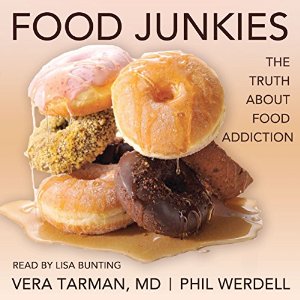
Top 7 Ways to Overcome Food Addiction
The primary difference between food addiction verse drugs, alcohol, tobacco, and other addictions is that everyone needs to eat in order to survive. When discussing other addictions such as drugs and alcohol, it is important to realize that individuals do not need drugs and alcohol to live unless they have a medical condition that requires specific medications.
The goal in the treatment of many addictions, especially, drugs and alcohol is usually abstinence, which may appear to be an unrealistic goal when it comes to food addiction. It isn’t really, and here is why.
Through research, scientists have found that when a person is battling an addiction, the pleasure center in your brain undergoes natural changes. When it comes to food addiction, we see the same changes happen when a person eats the hyper-palatable foods typical of the processed food fair.
Our food industry has changed dramatically over the years. A majority of foods produced in the United States are intentionally manufactured in such a way that they surpass the reward properties of traditional foods, such as vegetables, fruits, and nuts.
Food chemists achieve this by filling foods on the market with increased levels of fat, sugar, flavors, and food additives.
Eating an overabundance of these hyper-palatable foods causes a surplus of dopamine (the brain chemical that makes you feel a sense of pleasure) to flow, overwhelming the brain. This is the very same thing that happens when a person indulges in drinking or using drugs.
The brain can’t handle this excess of pleasure for a long period of time and it causes the body to decrease the total number of dopamine receptors (the only way to feel pleasure is when dopamine binds with its receptor).
As a result, this decrease in receptors causes your own perception of pleasure to decrease causing you to want more of the drug, alcohol, or sugar, fat, and salt.
This is how food addiction begins and if addiction runs in your family genes, the chances of becoming addicted to food are significantly higher. So want can you do to overcome or prevent overeating and food addiction?
Here are some effective tips, tools, and strategies to help you fight against food addiction and weight gain.
Table of Contents
- Determine if you are addicted to food or if you are an emotional eater
- Create a food diary
- Abstain from Triggering Foods
- Meditation helps you to relax and focus
- Acupuncture is an effective technique that has helped people with addiction and even eating disorders
- Create long and short-term goals
- Find One-One Help
- Find a support group
Determine if you are addicted to food or if you are an emotional eater
Yale University researchers created a quiz to help you determine if you are addicted to food. Take the quiz located on the EatingWell.com website or AddictionsUnplugged.com.
Another helpful resource is the book Food Junkies: The Truth About Food Addiction. This book provides a lot of resourceful information along with many tools and strategies to help someone overcome food addiction.
Create a food diary
Abstain from Triggering Foods
Meditation helps you to relax and focus
Acupuncture is an effective technique that has helped people with addiction and even eating disorders
How it works
Create long and short-term goals
Find One-One Help
Find a support group
Never give up. Millions of people suffer from addictions. Battling addiction can be very difficult, however, recovery is always an option and it can be achieved with the right help.
Don’t be ashamed to ask for help. You’re not alone.
Co-authored by Vera Tarman
Dr. Vera Tarman has been working in the field of addiction medicine since 1994. She became accredited with the Board of Addiction Medicine (ABAM) in 2004. Vera has been the medical director of Renascent since 2006.
Dr. Tarman was a regular contributor to the call-in TV show Living Clean, Living Well as well as a co-host on Addictions Unplugged, a community call-in show about addictions. Currently, she hosts a new show, Toronto Speaks Addiction.





